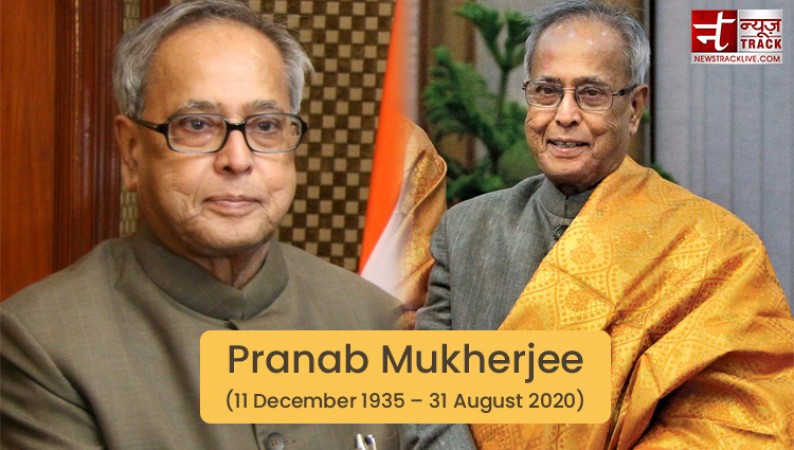
Today is the first death anniversary of former President of the country and Bharat Ratna awardee Pranab Mukherjee. Pranab Mukherjee was considered a master of knowledge, a scholar of politics and diplomacy. That was the reason why Pranab Mukherjee, who joined the Congress since Indira Gandhi's tenure, became a veteran and stalwart in the party. He saw many ups and downs in his political career. From the Indira Gandhi government to Manmohan Singh's agreement, he was part of the Union Cabinet and reached Rashtrapati Bhavan.
Born on December 11, 1935, in Mirati, a small village in the Birbhum district of West Bengal, Pranab Da was a land-linked leader. He did his MA in Political Science and History from Kolkata and also studied LLB from Kolkata University. In 1963, Pranab Mukherjee started his career as an Upper Division Clerk at the Office of deputy accountant-general (Post and Telegraph) in Kolkata. He then became an assistant professor of political science at his own college Vidyanagar College. Mukherjee also worked as a journalist in Desher Dak (Motherland Call) magazine before entering The Sahitya. Pranab Mukherjee held several key positions in politics for nearly 5 decades. Mukherjee, who also played an important role in the Indira Gandhi government, was considered to be the biggest and most trusted face of Congress.
Pranab Mukherjee stepped into the state in 1969 and was elected to the Upper House for the first time. Mukherjee was a member of the Rajya Sabha of Parliament five times. Pranab Mukherjee became union minister for the first time in 1973. After that, he was constantly part of Indira Gandhi and then Rajiv Gandhi's cabinet. Pranab Da became a Lok Sabha member after winning the 2004 and 2009 Lok Sabha elections and was the Leader of the House in the Lok Sabha for 8 years. He resigned from Congress and the Lok Sabha to contest the presidential election in 2012. Pranab Da also made an indelible mark as president. In the meantime, he took a strong stand on mercy petitions. He received 34 mercy petitions and rejected 30 of them. These include a mercy petition filed by Ajmal Kasab, accused in the 2008 Mumbai attacks, Afzal Guru, the main accused in the 2001 Parliament attacks, and Jacob Menon, the perpetrator of the 1993 Mumbai bomb blasts. Kasab was hanged in 2012, Afzal Guru in 2013, and Jacob Menon in 2015. Pranab Da, who made his mark as the President of the people, will always be remembered for the steps taken to make Rashtrapati Bhavan closer to the people.
CM Yogi's big decision: 'Sale of meat and liquor to be stopped in Mathura'
Fair value of the share-linked incentives paid to chief executive officers: RBI
Police working at the behest of YSRCP government to harass opposition leaders: Chandrababu Naidu